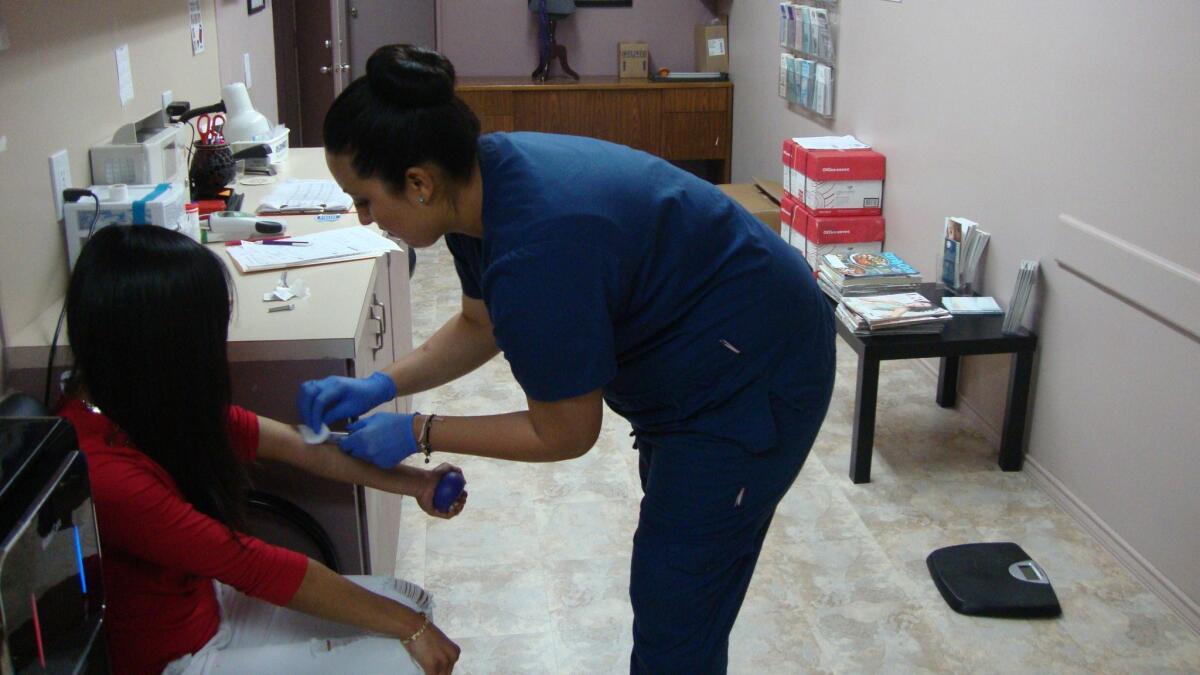When a woman wants an abortion but can’t get it, the children she already has suffer the consequences

- Share via
When women are denied abortions, it doesn’t just affect their lives, it also affects the lives of the kids they already have, according to a study published Tuesday in the Journal of Pediatrics.
The new work finds that the young children of women who are refused access to an abortion are less likely to hit development milestones on time, and more likely to live in poverty, than the children of women who sought an abortion and got one.
“The research here is clear,” said Diana Greene Foster, a demographer at the University of California San Francisco who led the work. “Restricting abortion access doesn’t just harm women. It harms their children as well.”
Previous research has shown that 60% of women in the U.S. who have an abortion already have children, the study authors said.
In addition, approximately one-third of women who seek an abortion say they want to end their pregnancy so they can take better care of the children they already have.
To find out if carrying an unwanted pregnancy to term negatively affects a mother’s ability to care for her other children, the authors turned to data collected by a unique five-year longitudinal study known as the Turnaway Study.
The Turnaway Study was designed by Foster to help researchers compare two groups of people: Those who wanted an abortion and got one, and those who wanted an abortion but were denied because they were past their clinic’s gestational limit.
Participants age 15 and older were recruited at 30 abortion clinics across the country. For the new study, the authors looked only at data collected from women who had children younger than 5 at the time that they sought an abortion.
Women were interviewed by telephone eight days after they went to the abortion clinic and then every six months for five years. As part of the survey, researchers asked questions about child development, child health, socioeconomic well-being and the amount of time a woman spent taking care of her youngest child under the age of 5 at the time she sought an abortion.
Ultimately they were able to collect data on 55 children whose mothers did not receive the abortion they sought and 293 kids whose mothers were able to end an unwanted pregnancy.
The authors found that both groups of kids were equally healthy and that both groups of mothers reported spending equal amounts of time caring for their kids.
But there were some differences. Children of women who were denied an abortion were less likely to reach developmental milestones than those whose mothers did have an abortion. Specifically, those in the turned-away group met 73% of their developmental milestones, on average, compared to an average 77% for children whose mothers were not turned away. Though small, the difference was too large to be due to chance, according to the study.
“Finding any significant difference is surprising,” Foster said. “It shows that whether or not a woman got an abortion actually affects her child’s development.”
The authors also found that the existing children of women who were denied abortions were more likely to live in poverty than those who received an abortion (72% compared with 55%) and to be in a household that does not have enough money to cover basic needs like food, housing and transportation (87% to 70%.)
“It is expensive to have a new baby,” Foster said. “And it takes you out of the workforce for a period of time. All of a sudden, a family has less money to take care of more people.”
The new work is just the latest of close to 40 papers to be published using data from the Turnaway Study.
Previous work has shown that having an abortion doesn’t lead to long-term mental health problems, but that not having one when it is desired can lead to anxiety and depression.
Another analysis suggests that having an abortion does not affect a woman’s chances of choosing to become pregnant in the future, while not having a wanted abortion reduces the chances of a future wanted pregnancy.
Yet another study showed that children born to women who were denied an abortion experience significantly less maternal bonding than the children of women who received abortions and had babies when they were ready.
Foster said researchers still have more to learn from the Turnaway Study about how women and their families’ lives are affected by whether they can access an abortion.
“By the time we’re done we should have 50 of these,” she said. “The next ones coming up look at differences in women’s physical health and education.”
Do you love science? I do! Follow me @DeborahNetburn and “like” Los Angeles Times Science & Health on Facebook.
MORE IN SCIENCE







